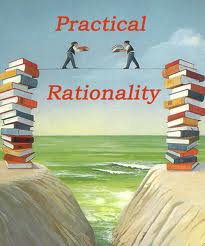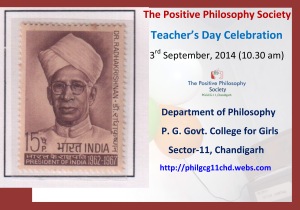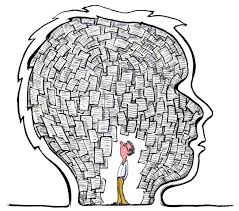
Human beings are endowed with the faculty of reasoning that enables them to think and draw logical conclusions. This increases human knowledge beyond the small limit of perceptual knowledge.
Scientific Knowledge and Reason
Scientific knowledge is gained by the exercise of reason. Reason has brought tremendous progress in scientific knowledge and technology. But this progress raised the question of rationality of science itself. Thus, rationality has become a debatable philosophical issue now a day. Before entering in the debate it is necessary to understand this issue clearly.
Scientific Theories and Choice
Scientists postulate theories to explain some phenomena occurring before them in their experiments and observations. It is found that the same phenomenon could be explained by some other theory postulated by some other scientist (or group of scientists). Thus theories come in competition in course of explaining a phenomenon.
Then naturally a question arises about the choice of the theory. Which one of the competing theories should be accepted as a better theory than the other? Does science has a rational criterion to decide it or is it a matter of the collective choice of the community of the scientists?
Opinions of the Philosophers of Science
20th century Philosophers of Science were divided on this issue. Some thinkers, like Sir Karl Popper, were of the view that science has within itself criterion of progress whereas others like Thomas Kuhn contend that it is a matter of choice of the community of scientists, and there is not strict scientific formula to make a decision in this regard.
View of Karl Popper
Karl Popper, who is supporter of objective rationality of scientific theory choice, argues that in the cases of competing theories that theory is chosen which could predict newer facts and that theory is refuted which fail to do so or predict lesser number of facts.
This is the only way to rationally decide which theory is better. Thus the criterion of theory of choice is available within scientific enterprise itself and scientists can’t choose any theory apart from this criterion of progress.
View of Thomas Kuhn
Thomas Kuhn tries to show that in cases of theory choice scientists don’t really have any criterion as Popper has indicated because in the light of one really have any criterion as Popper has indicated because in the light of one theory one sort of facts are predicted and in the light of the others. Scientists, according to Kuhn, work and postulate a theory under the influence of a particular paradigm of science and keep predicting facts deduced from that theory.
No theory is immediately refuted if some facts don’t accord with that. Scientists keep working with that theory till a new theory makes an occasion of shift in paradigm. A paradigm is the shared belief of the community of the scientists regarding the explanatory power and efficacy of a theory. No new theory can prove its efficacy in advance; it takes long to practically test its predictions and to decide about its explanatory power.
Kuhn argues that theory choice can’t be made by any formula as indicated by Popper. It is the acceptance of a new paradigm by the community of scientists without any strict logical ground that bring about a revolutionary change in science.
Therefore, Kuhn holds that the rationality of scientific theory choice is dependent on the paradigm that is accepted by the community of the scientists as a matter of shared beliefs and there is no fixed scientific criterion or objective logic of this choice.
Nature of Rationality
Earlier it was believed that rationality is one and absolute. Now many thinkers, scientists, historians, and writers contend that rationality is paradigm or system relative. In this light people talk about multiple rationality also, i.e., many types of rationality.
Both Views are correct
It is not possible to decide which view about rationality is correct. In fact this kind of decision is not needed because a close philosophical reflection reveals that both the views of rationality are correct in their respective contexts. It is true that a purely objective general formula for theory choice neither in science nor in any other intellectual endeavor could be presented.
Human Choice
Human choice at such a deeper level essentially involves many subjective elements but once this choice is made no subjective elements are permitted to go ahead in that system if that system is to be called a rational system at all. At every turn subjective elements are not and can’t be allowed.
Within a system once has to strictly and objectively adhere to certain rules to ensure rationality of the conclusions of that system.
Conclusion
Rationality could be accepted to be multiple or many in the sense that different systems don’t adopt the same set of rules for drawing conclusions. However, the recognition that these different sets of rule are necessary to ensure rationality of the conclusions within various systems make it clear that rationality is identifiable beyond the boundaries of different systems, and in this sense it is absolute and purely objective.
Picture Citaiton:
http://faculty.philosophy.umd.edu/PGreenspan/Res/p-rat.html










